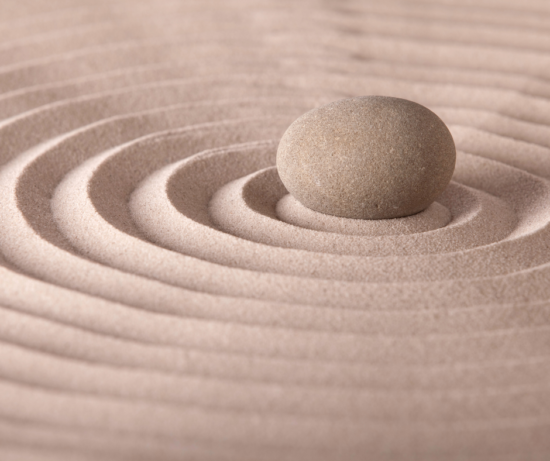Body and mind are inseparable. The natural state of the body is harmony. When we respond with acceptance to various situations that arise in our lives, we remain in balance. When there is a problem and the tension associated with its solution or the inability to solve the problem, our thoughts and accompanying emotions give internal information to our nervous, endocrine and immune systems. And this makes us feel stress with our whole body. If such a state lasts a long time, then our suffering begins to manifest itself with health and pain problems.
More and more people suffer from various pains, unexpected, recurrent, chronic, or related to autoimmune diseases. Especially women. Shelves bend from painkillers, they will help for a while, but what next? What if your migraine no longer responds to medication, what if your shoulder hurts like hell, you can’t sleep, you barely get over it day after day, and at the doctor’s appointment you find out that you have inflammation of unknown origin or that it’s strange that your knee hurts so much? Maybe you’re exaggerating a bit? How do you deal with such situations?
 Pain is a sensory and emotional experience, it is subject to learning processes, which leaves traces of memory at various levels in our nervous system and throughout the body. Your body remembers, and because of this, previous pain experiences can affect your current experience of pain and the intensity of your pain experience.
Pain is a sensory and emotional experience, it is subject to learning processes, which leaves traces of memory at various levels in our nervous system and throughout the body. Your body remembers, and because of this, previous pain experiences can affect your current experience of pain and the intensity of your pain experience.
The anxiety of waiting for pain when you wake up in the morning and wonder how it will be today can significantly enhance the pain sensations. The emotions you experience then cease to be just a reaction to the disease, but become an important element in the struggle with pain. The emotions that most often accompany pain are: fear, anxiety, anger, frustration, denial, feeling helpless. Importantly, different emotions are experienced by a person experiencing acute, sudden pain warning that something is wrong, than experienced by a person suffering from chronic pain. In the case of the latter, the pain ceases to be a warning, but still evokes emotions, maybe of lower intensity, but still. Fear that I will not be able to cope with the pain, the unknown of how long it will last, a sense of helplessness, can turn into a constantly accompanying depressed mood, sometimes depression.
 Our negative emotions about living with pain reinforce our perception of pain and the circle closes, the vicious circle of experiencing pain. And this is not the only vicious circle, because at the level of our physiology we also wind up a spiral of pain. Pain increases muscle tonus, which leads to impaired functioning of the endocrine, immune and nervous systems. Interestingly, researchers of these issues believe that the mechanism of the physiological vicious circle can occur both when the root cause of pain is somatic in nature and when it is of an emotional nature!
Our negative emotions about living with pain reinforce our perception of pain and the circle closes, the vicious circle of experiencing pain. And this is not the only vicious circle, because at the level of our physiology we also wind up a spiral of pain. Pain increases muscle tonus, which leads to impaired functioning of the endocrine, immune and nervous systems. Interestingly, researchers of these issues believe that the mechanism of the physiological vicious circle can occur both when the root cause of pain is somatic in nature and when it is of an emotional nature!
The immune system of a healthy person can heal the body when the balance in the body is maintained. If it is blocked by stress, destructive patterns of emotional reactions, beliefs that do not serve you, and there is also the memory of cells in which the emotions of our reactions to the original experience of stress have been stopped, then the body constantly reacts to internal and external stressors, and our immune system is not able to cope with it.
But perhaps, pain or illness are a lack of our acceptance of life as it is and the fact that life is a movement, a constant change? Maybe it’s our attachments to the old way, or our expectations of how things should look like, that create tensions in our minds and bodies that hurt more than physical trauma? And our soul, or some forgotten part of us, seeks our attention and asks us to stop and listen.
Your body wants to tell you something important. But what?
Stop and ask yourself: WHAT’S GOING ON HERE? What’s the point of that? WHAT REALLY HURTS ME? Is it “just” the body? Or perhaps, through the body, your soul, the Self, or something, deep within you, is calling out to you and asks for your attention. What do you say to that?
 To begin with, I encourage you to take a piece of paper and something to write, find a quiet place, calm your mind, and then answer the following questions with honesty. You can answer all questions or the chosen ones, and maybe only one that will move you the most.
To begin with, I encourage you to take a piece of paper and something to write, find a quiet place, calm your mind, and then answer the following questions with honesty. You can answer all questions or the chosen ones, and maybe only one that will move you the most.
- Do you listen to yourself?
- Do you respect yourself?
- Are you on your side?
- Do you take care of yourself?
- Do you know what you want?
- Do you feel yourself?
- Do you love yourself?
Do you experience any sensations in your body when you read these questions or when you answer them? Those sensations, even subtle, can be an important signal to be interested in what is happening in you and why at this particular moment.
How well do you know yourself? Do you know how you physically react to different situations, what emotion or emotions accompany you, how you feel them in the body and where, as well as what effects they cause?
Write down your sensations, draw, express with movement. Ask your pain, “What do you want to tell me?” and let that question accompany you every day. One day the answer will come, because it is already in you.
 I also encourage you to release from the memory of cells, tissues any blocked emotions, which cause a lot of tension in the body and affect its functioning, through the body work, for example, craniosacral therapy. This method supports the nervous system and thanks to its gentleness works with the body without forcing anything on it, which in my opinion is very important when the body is strained with pain.
I also encourage you to release from the memory of cells, tissues any blocked emotions, which cause a lot of tension in the body and affect its functioning, through the body work, for example, craniosacral therapy. This method supports the nervous system and thanks to its gentleness works with the body without forcing anything on it, which in my opinion is very important when the body is strained with pain.
I wish you patience and trust in the process, gentleness for yourself in weaker moments and add to it what else that you need.
And if you are struggling with pain, you want to release tension in the body, give some space and balance to your nervous system, and open yourself in a search for an answer to the question “what hurts me” then I invite you to contact with me.
Take care of yourself,
Agnieszka
